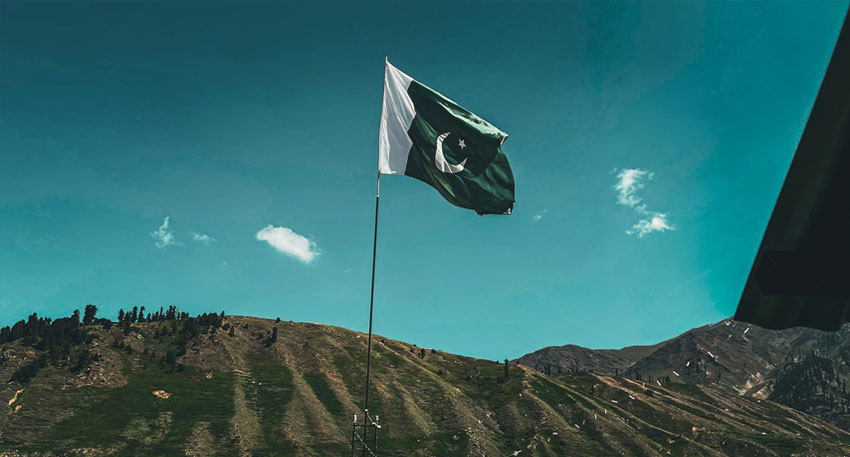
Pakistan s Nuclear Dilemma: How the Iran-Israel Crisis Exposed Strategic Vulnerabilities
The Iran-Israel nuclear crisis of June 2025 has placed Pakistan in an unprecedented predicament, forcing Islamabad to navigate treacherous diplomatic waters while confronting the weaponization of artificial intelligence in international misinformation campaigns. As nuclear tensions reach their highest point in the Middle East since the 1973 Yom Kippur War, Pakistan finds itself unexpectedly thrust into the global spotlight—not for its actions, but for fabricated claims about its intentions.
The Misinformation Storm
Pakistan s first major challenge didn t come from missiles or military threats, but from a manipulated video that went viral across social media platforms. While the original Farsi footage of Iranian Revolutionary Guard Corps General Mohsen Rezaei was authentic, the English-dubbed version claimed that "Pakistan told Iran that if Israel drops a nuclear bomb in Tehran, we will drop a nuclear bomb on them." Within hours, this falsely translated clip had been viewed millions of times, creating a diplomatic crisis for a nation that never made such a statement.
The episode marked a watershed moment for Pakistan s information security apparatus. For the first time since developing nuclear weapons in 1998, Pakistan faced the challenge of debunking AI-manipulated translations of its nuclear doctrine. Pakistani media outlets and fact-checkers worked overtime to expose the manipulation, revealing that the original Farsi footage of Rezaei contained no mention of Pakistan whatsoever—the nuclear threat had been fabricated through false dubbing or translation.
This incident exposed a critical vulnerability: in an era of instant global communication, Pakistan s nuclear status makes it a prime target for sophisticated translation manipulation and misinformation campaigns designed to escalate international tensions. The country s foreign ministry was forced to issue multiple clarifications, highlighting how nuclear-armed nations must now contend with AI-enabled disinformation alongside traditional military threats.
Walking the Tightrope: Pakistan s Balancing Act
Pakistan finds itself navigating tense diplomacy amid the Israel-Iran conflict, fearing secessionist and strategic fallout. The crisis has illuminated the complex web of relationships that Pakistan must manage as tensions escalate in the Middle East.
Geographically, Pakistan shares a 905-kilometer border with Iran through its southwestern Balochistan province—a region already plagued by separatist movements and security challenges. The Iran-Israel conflict has heightened concerns in Islamabad about potential spillover effects, particularly given Iran s use of proxy forces and Pakistan s own struggles with militant groups operating along the border.
The timing could not be less ideal for Pakistan s domestic security. Already grappling with economic instability and internal security challenges, the last thing Pakistani leadership desires is to be drawn into a Middle Eastern conflict that could destabilize its western border and complicate relationships with both regional and global powers.
The Nuclear Shadow Over South Asia
Pakistan s nuclear program, developed primarily as a deterrent against India, was never designed with Middle Eastern conflicts in mind. Yet the current crisis has demonstrated how quickly nuclear-armed nations can be pulled into distant conflicts through alliance relationships, shared borders, and information warfare.
The Iran-Israel escalation began on June 12, 2025, when the IAEA Board of Governors adopted a resolution which, for the first time since 2005, formally found Iran to be non-compliant with its nuclear safeguards’ obligations. Within 24 hours, Israel launched comprehensive strikes against Iranian nuclear facilities, fundamentally altering the regional security landscape that Pakistan must navigate.
The speed of escalation caught many observers off guard. U.S. forces joined the attacks, with President Trump announcing, "We have completed our very successful attack on the three Nuclear sites in Iran, including Fordow, Natanz, and Esfahan." This marked the first time since World War II that nuclear facilities had been directly targeted by military strikes of this magnitude.
Pakistan s Strategic Calculations
The crisis has forced Pakistan to confront several uncomfortable realities about its position in an increasingly multipolar world. First, its status as a nuclear power makes it a valuable but dangerous ally. Countries seeking to escalate conflicts may attempt to draw Pakistan in through false claims or manufactured provocations, as evidenced by the AI-generated video incident.
Second, Pakistan s geographic location continues to complicate its foreign policy. Situated between Iran and India, with Afghanistan to the north and China as a key ally, Pakistan must carefully balance competing interests while maintaining strategic autonomy. The Iran-Israel crisis has highlighted how regional conflicts can quickly spiral beyond their original boundaries.
Third, Pakistan s information warfare capabilities need urgent modernization. The rapid spread of the manipulated translation revealed significant gaps in the country s ability to counter sophisticated misinformation campaigns. As AI technology makes translation manipulation easier, Pakistan—like other nuclear powers—will face increasing challenges in managing its international image and preventing false narratives from triggering real-world consequences.
The Ceasefire and Lessons Learned
A ceasefire agreed to by Israel and Iran appears to be holding after it was announced by President Donald Trump. The temporary de-escalation provides Pakistan with breathing room to assess the crisis s implications and adjust its strategic posture accordingly.
The episode has reinforced several key lessons for Pakistani policymakers. Nuclear weapons provide deterrence but also make countries targets for manipulation and misinformation. The global information environment has become a new battlefield where nuclear doctrines can be fabricated and disseminated faster than governments can respond.
Pakistan s response to the crisis—firmly denying the fake claims while maintaining diplomatic neutrality—demonstrates a mature approach to nuclear diplomacy. However, the incident has also highlighted the need for more proactive information security measures and clearer communication strategies.
Looking Ahead: Pakistan s Nuclear Future in a Multipolar World
The Iran-Israel crisis of 2025 may be remembered as a turning point in Pakistan s nuclear evolution—not because of any weapons deployment, but because of how it exposed the changing nature of nuclear deterrence in the digital age. Pakistan s nuclear program, originally conceived as a bilateral deterrent against India, now operates in a global context where translation manipulation and information warfare can be as destabilizing as missile strikes.
As the Middle East grapples with the aftermath of the nuclear facility strikes and the international community works to prevent further escalation, Pakistan faces the challenge of adapting its nuclear doctrine and information security infrastructure for an era where deepfakes can trigger diplomatic crises and regional conflicts can spiral global through social media algorithms.
The current ceasefire provides temporary stability, but the underlying dynamics that drew Pakistan into this crisis—its nuclear status, geographic location, and vulnerability to misinformation—remain unchanged. How Pakistan addresses these challenges will shape not only its own security but also the broader dynamics of nuclear deterrence in an increasingly interconnected and unstable world.
For a country that has spent decades carefully managing its nuclear image, the Iran-Israel crisis has served as a wake-up call: in the 21st century, nuclear powers must defend not only their territories but also their digital narratives. Pakistan s experience offers valuable lessons for other nuclear-armed nations about the evolving nature of deterrence, diplomacy, and information warfare in an age of artificial intelligence and instant global communication.




